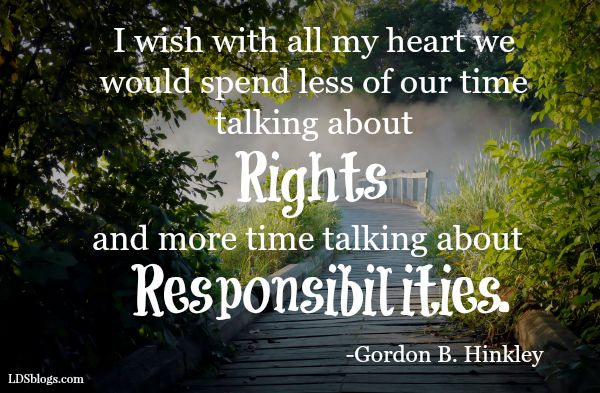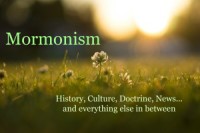This article was originally published in Latterdaysaintwoman.com. Terrie Lynn Bittner, the author of this article, has passed away. But we continue to publish her works in honor of her memory.
I am reading about Cain and Abel. This story used to really bother me before I understood it. I mostly teach Junior Primary and we don’t spend time on this story, so I didn’t spend a lot of time thinking about it. However, now that I am there in the Old Testament, I am.
Abel and Cain both made sacrifices to God. The Bible is sort of light on background information; we get more from the Pearl of Great Price.
 So here’s what happened: Abel’s job in the family business was to raise sheep. Cain’s was to farm the crops. When it came time to make a sacrifice, Abel killed one of his sheep and Cain brought some of his crops. However, the Lord accepted Abel’s and did not accept Cain’s. This is what used to bother me. They each brought something from their own business and offered it as a gift. To me, that seemed totally appropriate at one time.
So here’s what happened: Abel’s job in the family business was to raise sheep. Cain’s was to farm the crops. When it came time to make a sacrifice, Abel killed one of his sheep and Cain brought some of his crops. However, the Lord accepted Abel’s and did not accept Cain’s. This is what used to bother me. They each brought something from their own business and offered it as a gift. To me, that seemed totally appropriate at one time.
The problem, of course, is that I was viewing it more like a tithing situation. I earn money, so I pay my tithing in cash. In the early days of the Church, people often paid their tithing in whatever their business produced. A potato farmer paid his tithes in potatoes. A sheep rancher paid his in sheep. So to me, it seemed mean to let Abel make his gift in the form of something he raised, but to reject Cain’s offering of his work. It seemed unfair and discriminatory. After all, although I don’t know how the economic structure worked at that point in time, it seemed like it would be easier for Abel to provide a sheep, since he raised them, than it would be for Cain, who didn’t.
It wasn’t a tithing situation, though. It was a sacrifice offering. The sacrifice had to be a blood offering–an offering of an animal that had been killed for that purpose–in order to help them understand and to remember the atonement, which would happen in the future.
 In the Pearl of Great Price, we learn that Cain was being coached by Satan. Satan had told the children of Adam and Eve that he was also a son of God and they could listen to him as well as they could to Jesus. Too many of them decided to follow Satan, because, as is still the case, his teachings were more fun, more fashionable, more worldly. And Satan seems to have taken a special interest in Cain.
In the Pearl of Great Price, we learn that Cain was being coached by Satan. Satan had told the children of Adam and Eve that he was also a son of God and they could listen to him as well as they could to Jesus. Too many of them decided to follow Satan, because, as is still the case, his teachings were more fun, more fashionable, more worldly. And Satan seems to have taken a special interest in Cain.
So, it was Satan who suggested to Cain that he bring those crops. I don’t know what arguments he used to convince Cain, but I can imagine it being something like this:
“Cain, you know what? There’s no reason you should have to go buy a sheep from your brother. That really isn’t fair–it’s just pure discrimination. God decided–randomly it appears–to make the sacrifice be what your brother does instead of what you do. It makes it seem like your brother is more important and more loved than you are. You’re a great farmer. You raise incredible crops. Anyone would be proud to get a gift of them–even God. So stand up for your career. Show them it’s not fair to make the sacrifice be limited to sheep. Stand up for your rights, Cain…bring crops.”
 That’s how Satan does things today. He gets everyone hyper-focused on rights instead of responsibilities. He gets us to quit thinking there might be a greater eternal purpose to all this than whatever is considered fair or right in this very short, very limited mortality. And that started Cain on a most dangerous path.
That’s how Satan does things today. He gets everyone hyper-focused on rights instead of responsibilities. He gets us to quit thinking there might be a greater eternal purpose to all this than whatever is considered fair or right in this very short, very limited mortality. And that started Cain on a most dangerous path.
We learn from the Pearl of Great Price that Cain didn’t head straight out to kill his brother and get punished. It took some time, time which Satan spent carefully building his case so it sounded more and more reasonable to Cain. I’m sure Cain was filled to the brim with his anger over the unfairness of the whole thing by the time he encountered his brother and killed him.
While we’re not likely to go kill someone today, when we focus too much on rights and not enough on responsibility, when we listen too much to the world’s view on what is fair and right, we put ourselves in danger. It isn’t the world’s view we were sent to Earth to listen to…it was God’s.
This quote came to mind as I was thinking over this particular topic:
“I wish with all my heart we would spend less of our time talking about rights and more talking about responsibilities. God has given the women of this church a work to do in building his kingdom. That concerns all aspects of our great triad of responsibility—which is, first, to teach the gospel to the world; second, to strengthen the faith and build the happiness of the membership of the Church; and, third, to carry forward the great work of salvation for the dead (Gordon B. Hinckley, Live Up to Your Inheritance, October 1983, Relief Society session).
The late Terrie Lynn Bittner—beloved wife, mother, grandmother, and friend—was the author of two homeschooling books and numerous articles, including several that appeared in Latter-day Saint magazines. She became a member of the Church at the age of 17 and began sharing her faith online in 1992.



